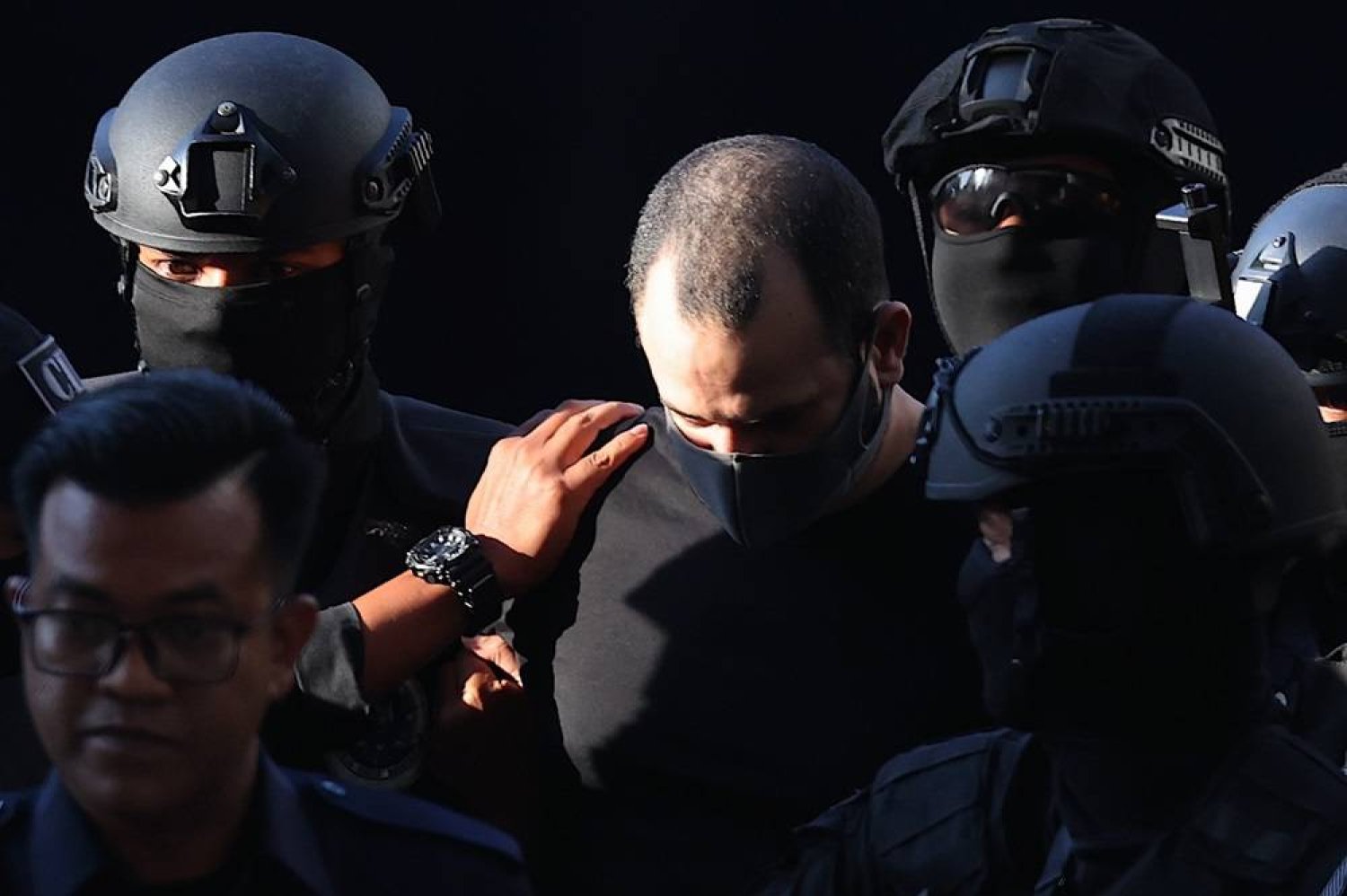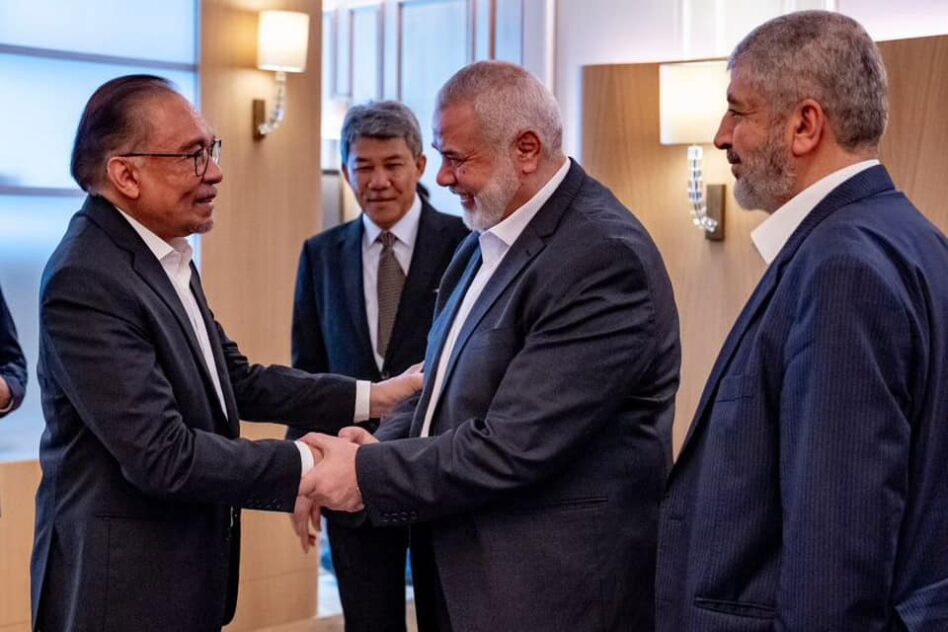
IN April 2018, Fadi Mohammad al-Batsh, a Palestinian engineer, academic, and member of Hamas, was tragically killed in Kuala Lumpur while on his way to a mosque for morning prayers.
Hamas’ military wing recognised him as a member and called him a commander after his death. Al-Batsh’s family blamed Mossad for planning the assassination, but Israel denied any involvement.
More recently, an Israeli individual was apprehended in Malaysia on March 27, in possession of six pistols and 200 rounds of ammunition.
Inspector-General of Police Tan Sri Razarudin Husain had indicated that inquiries are currently being conducted to ascertain the individual’s true intentions behind having the firearms.
The individual entered Malaysia utilising a French passport, which had raised concerns regarding national security. His arrest has garnered considerable attention due to the type of weapons seized and the potential security and safety implications in the region.
These two occurrences should have instilled nervousness within our intelligence and security forces, given Malaysia’s unwavering support for the Palestinians and their predicament.
The initial occurrence raises questions regarding the ability of Mossad operatives to infiltrate Malaysia undetected and eliminate al-Batsh without arousing suspicion. Equally concerning is the manner in which these agents managed to evade detection while leaving the country.
The second incident further perplexes as it involves an Israeli individual entering Malaysia using a French passport and acquiring firearms from locals.
These situations raise significant concerns about the presence of Mossad, Israel’s intelligence agency, within Malaysia. If indeed Mossad is operating within our borders, it is crucial for our intelligence and security forces to enhance their endeavours in deterring any potential harm.
Prime Minister Datuk Seri Anwar Ibrahim recently held a meeting with Ismail Haniyeh, the leader of Hamas in Qatar, as a demonstration of our unwavering solidarity.

Consequently, our political figures, including the prime minister, have reiterated their firm backing for Iran, expressing apprehensions regarding the safety and protection of our leaders both domestically and internationally.
Therefore, it is imperative to ensure the safety of our leaders who openly voice criticisms against Israel, drawing parallels to the Malayan Emergency of 1951 when Sir Henry Gurney, the British High Commissioner in Malaya, was assassinated near Fraser’s Hill by the Malayan National Liberation Army (MNLA), a communist group.
While some may consider the assassination of our leaders to be a remote possibility, we cannot afford to take any chances.
For instance, based on a report from counterextremism.com, Kumpulan Mujahidin Malaysia (KMM) is currently deemed inactive.
The group had engaged in violent activities in past such as attempting to overthrow the Malaysian government, carrying out assassinations of politicians, and making efforts to target US Navy personnel stationed in Klang and Lumut Port.
The recent attack on three policemen inside a police station in Ulu Tiram, where two officers lost their lives to a terrorist, serves as a stark reminder that even our police officers and stations are not immune to such acts of violence.
Furthermore, according to a report by the Combating Terrorism Centre (CTC) in 2015, political assassinations continue to hold significant importance in contemporary times, exerting a profound impact on political and social processes.
The report stated that the assassination of Israeli Prime Minister Itzhak Rabin in 1995, for instance, is widely believed to have played a pivotal role in the collapse of the peace process between Israel and the Palestinians.
Similarly, the assassination of prominent figures like Benazir Bhutto has had a lasting effect on the success of their respective political parties even after their demise.
Additionally, in South Asia, a staggering 76% of assassinations have occurred since the mid-1980s, possibly stemming from the escalating instability in the region during and after the Soviet invasion of Afghanistan.
The report concluded that the political assassinations tend to exacerbate the likelihood of a state’s fragmentation and undermine its democratic character.
Besides, it was revealed that Mufti Abdul Hannan, the leader of the Bangladeshi branch of Harkat-ul-Jihad al-Islami (HuJI), actively participated in the attempted assassination of Sheikh Hasina, the current Prime Minister of Bangladesh, in August 2004.
In conclusion, our political leaders’ safety is currently at risk due to our steadfast support for the Palestinian cause.
Not only are they vulnerable to external foreign intelligence agencies such as Mossad, but they also face threats from religious-based terrorist groups who oppose the government’s MADANI concept, which they may view as deviant.
Given the current geopolitical situation, it is crucial that we remain vigilant and prepared to safeguard our nation’s sovereignty and the well-being of our leaders.
R.Paneir Selvam is the principal consultant of Arunachala Research & Consultancy Sdn Bhd (ARRESCON), a think tank specialising on strategic national and geo-political matters.
The views expressed are solely of the author and do not necessarily reflect those of MMKtT.
- Focus Malaysia



No comments:
Post a Comment
Note: Only a member of this blog may post a comment.